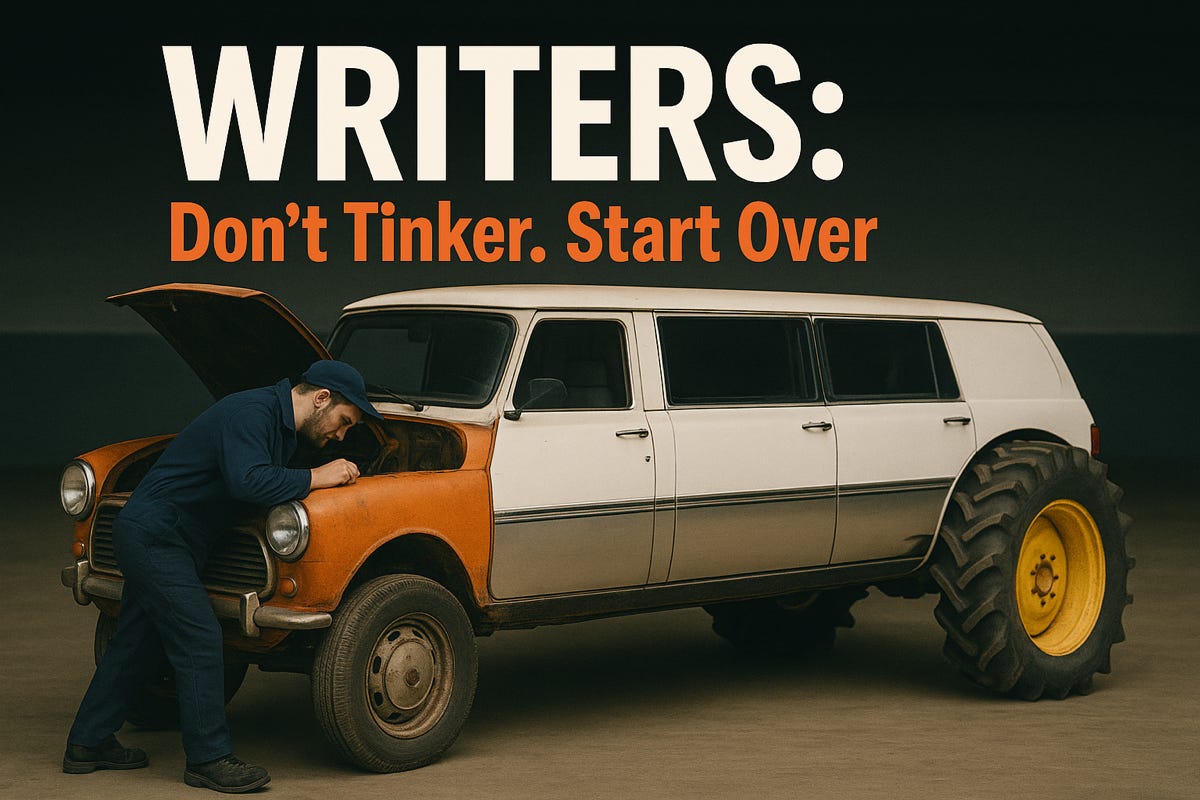Before we get started, PLEASE could you answer one question for me? It affects what I’ll be writing about on this blog over the next 3-6 months. Here’s question:
If this doesn’t even begin to describe your situation, please do leave a comment below about what you be interested in and prepared to pay for (since I can run this blog for £0).
Anyway, here’s what you came for:
Are writers terrified of the blank page?
Or is that a cliché put about by non-writers who wouldn’t know where to start if they had to write an article or a script?
It’s understandable. Things that we don’t understand seem impossibly hard. Every quarter, I’m pathetically grateful to my accountant for filling in all the right boxes on my VAT return. To him, those empty boxes aren’t scary at all.
When it comes to writing the first line of a script on a blank page, it can be hard. Who says the first line? What do they say? Most of us are not using outlines with that level of detail. But perhaps it would make our lives easier if we did.
In reality, you just start. The first scene is always painful to write. It’s always too long. And it can always be hacked back later. Note: make sure you hack it back later. But when I sit down to start a script, I plan only to start the scene. Not even finish. I give myself permission to run out of steam. And normally, I surprise myself by finishing the first scene and starting the next.
Back to the Blank Page?
Having conquered the blank page, however, many of us can be reluctant to go back to a blank page. We feel that we’ve done the hard yards. We’ve got our rough draft. And we chip away at it, hoping a statue worthy of Michelangelo is going to emerge at some point. Eventually. How’s that going?
The problem is that we end up trying to tame some kind of Frankenstein’s monster. Our first draft script might be 45 pages, and is, essentially, a number of parts lashed together. We know it needs to be 30 pages, but we’ve put everything in the script. Our first outline or treatment for a new idea might be 3000 words. But we think we can hone it and refine it.
So here’s my pro tip: try going back to a blank page. In the long run, it will probably be easier, less work and more fruitful.
I’m working on an idea at the moment. The treatment, including a pilot outline is 7 pages. It’s 3409 words.
I’ve just had a meeting about it. We had all agreed there was a key element missing that needed to be added. And in that meeting, we came up with it. Plus had a really good idea for a repeating device that really encapsulates the show.
Neither of these changes seem fundamental or existential. But I know from experience that if I tinker with the existing document, it will get baggy. It will be 9 pages and 4500 words. The idea will be lost and diluted. There’ll be traces of all kinds of redundant ideas and elements in it.
And it won’t be fun to read. At this stage, for heaven’s sake, make your idea for a comedy fun to read. Make it a fun story – with all the fun and none of the boring stuff. Don’t present stuff that resembles technical architectural plans for an office block.
If you want that vim and freshness, start again with a blank page.
But what about all that work? And I don’t want to lose the good stuff! And…
Don’t panic. Breathe. Okay?
You’ve Done the Hard Work
You’re not starting from scratch. You’ve got the old document open in front of you. That’s on the right. On the left is my blank page with a blinking cursor. And I’m going to start again. The show is mostly in my head anyway. I know who the characters are and, crucially, what this show is really and truly and ultimately about. So I’m going to start with that.
I will probably cut and paste some sentences from the previous document. Maybe even a few short paragraphs. But in general, I’m starting again with a blank page.
It feels like I’m taking the seeds from the last plant, and replanting them in a fresh, uncluttered pot and allowing something more pure to grow. It can now blossom unencumbered.
I gave this advice to someone when I read their 45-page script the other day. Loads of great ideas. But the next draft needed to start with a blank page. My script-reading service includes a 45-minute Zoom call where we go through the notes and talk about the script. Did you know that? If you’d like to find out more, or book me for a session, find out more over here:
Oh, and I made a video of this post:






Hi James, I’m sorry, but I’m not a writer. I won’t be taking part in any of your classes. Nevertheless, I was interested to read about the Supercharge programme. And when I read it, I came across this gem from, I presume, you.
And all of the above should mean that your script has been improved twiced over and you've improved as a writer.
Twiced? Really? When was this word invented, and by whom?